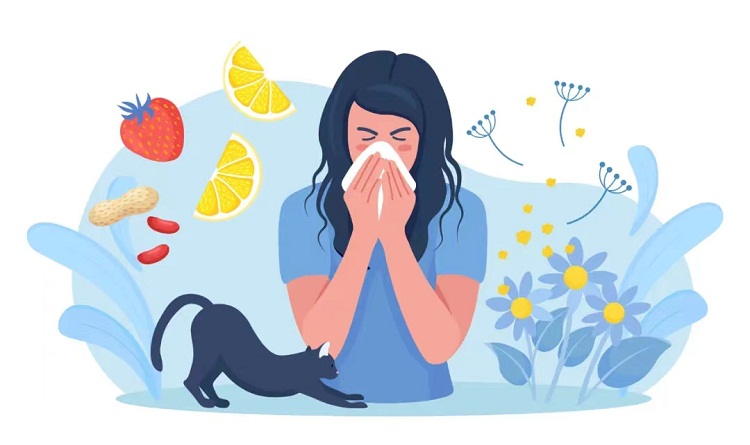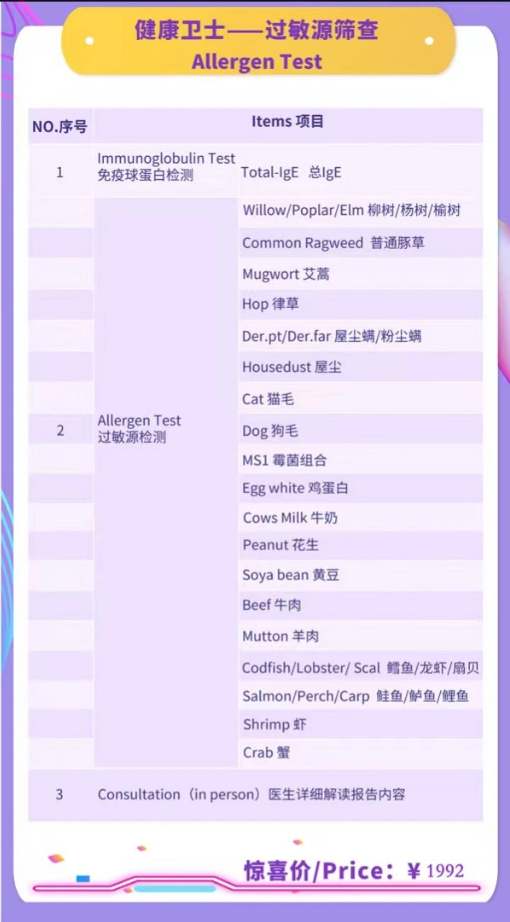News& Information
-
Medical Trends
 Home -> News& Information -> Medical Trends
Home -> News& Information -> Medical Trends
Seasonal Allergy - What Should You Know?
It’s the middle of April. In addition to the blooming flowers, it’s also willow catkin pollen season. With the increasing outdoor activities, the allergy symptoms are becoming prominent. Many people suffer from allergy symptoms and need allergy medication. What are the drugs used to treat allergies?

what is allergic reaction?
The symptoms of an allergic reaction can vary from mild to severe. If you become exposed to an allergen for the first time, your symptoms may be mild. These symptoms may get worse if you repeatedly come into contact with the allergen. A severe and sudden allergic reaction can develop within seconds after exposure to an allergen. This type of reaction is known as anaphylaxis and results in life-threatening symptoms.
Types of allergies
Allergy medication is used to prevent allergic symptoms caused by various antigenic substances (such as bacteria, viruses, parasites, pollen, etc.). Allergy medication can be divided into antihistamines, glucocorticoids, immunosuppressants and other drugs.
The more common allergies include allergens such as grass and tree pollen, dust mites, animal hair, skin, food particularly nuts, shellfish, eggs and cows’ milk. Another type of allergens are the medicines including ibuprofen, aspirin and antibiotics. Latex, insect stings and bites and also household chemicals can provoke allergic reaction too.

Allergic reactions usually happen quickly within a few minutes of exposure to an allergen.
Most common symptoms are:
*sneezing
*a runny or blocked nose
*red, itchy watery eyes
*wheezing and coughing
*a red itchy rash
*worsening of asthma and eczema symptoms
Principle of treatment
Oral medicine
Antihistamines are drugs that treat allergy symptoms by blocking the effects of histamines. Antihistamines can be divided into first-generation, sedating antihistamines, and second-generation, non-sedating antihistamines. There are several different types. Your doctor can prescribe or recommend the most suitable for you.
For external use
In addition to oral medication, allergic people can also use some external allergy medicine. For allergic rash on skin, anti-inflammatory allergy medicine, such as hormone ointment, can be used. Many people will worry about the side effects of hormones in ointments. However, there is nothing to worry about if you follow the doctor's orders. In addition, if the affected are is small, ice can be applied to constrict the blood vessels to relieve itching.
Pollen allergy
Pollen allergy is mainly manifested as allergic rhinitis or allergic asthma. Patients can be treated with nasal spray, including antihistamines, mometasone furoate, fluticasone, budesonide and other local hormone medication. It can also be treated by oral antihistamines; some patients can also be treated by oral montelukast for symptoms such as nasal congestion and slight cough. If the symptoms are severe or lasting for a long time, and if the patients refuse to use hormone nasal spray or inhaled hormone, allergy can be treated by allergy immunotherapy.
Testing for allergies
If you think you have an allergy, explain the symptoms to your doctor. Give your doctor info about when the symptoms are happening, how often they occur and if anything seems to trigger them.There are tests that may be carried out if your allergy is more severe or it’s not obvious what you’re allergic to, you may be referred for allergy testing. Those tests are skin prick test, blood tests, patch tests, elimination diet and challenge tests.





